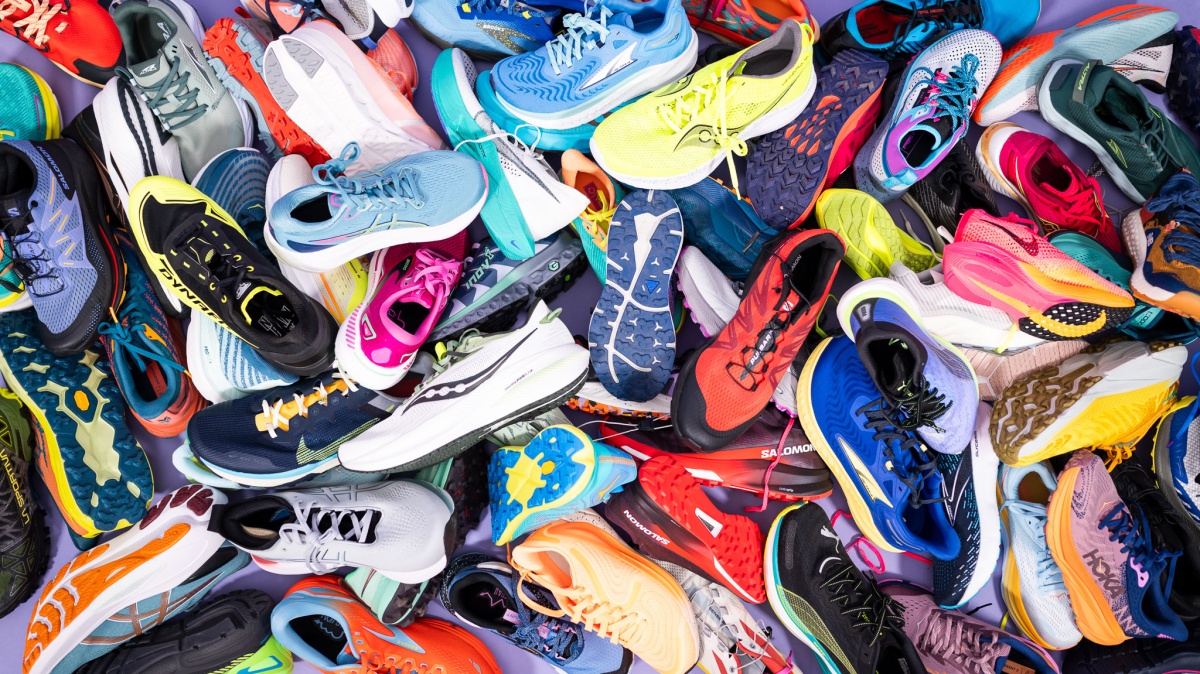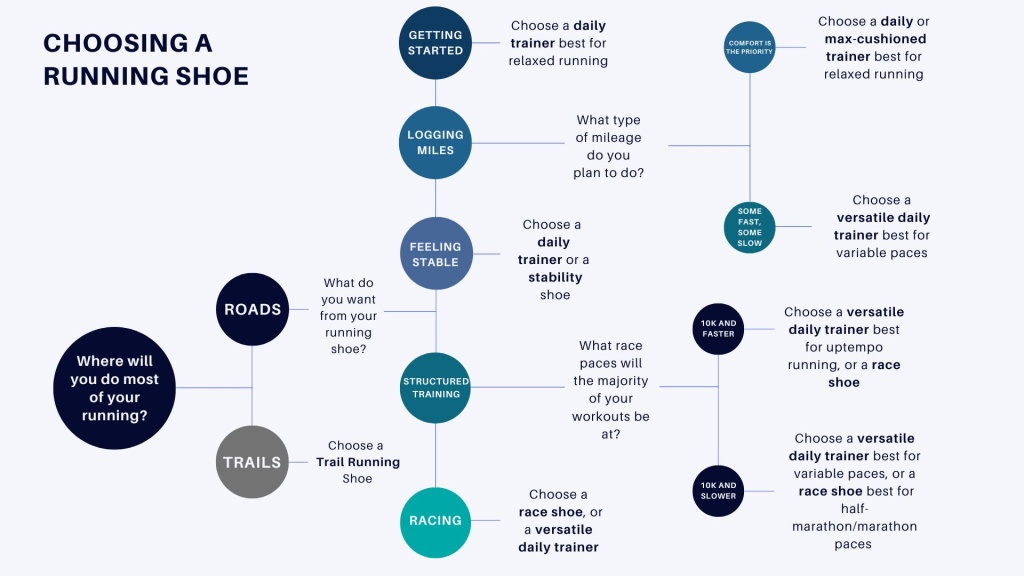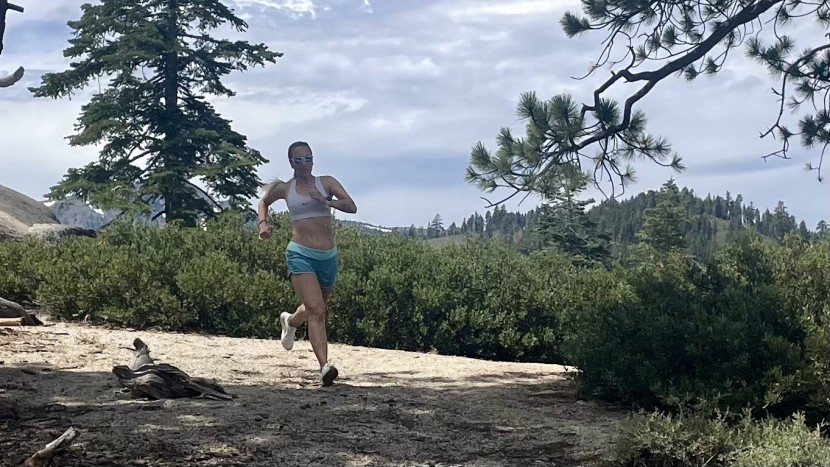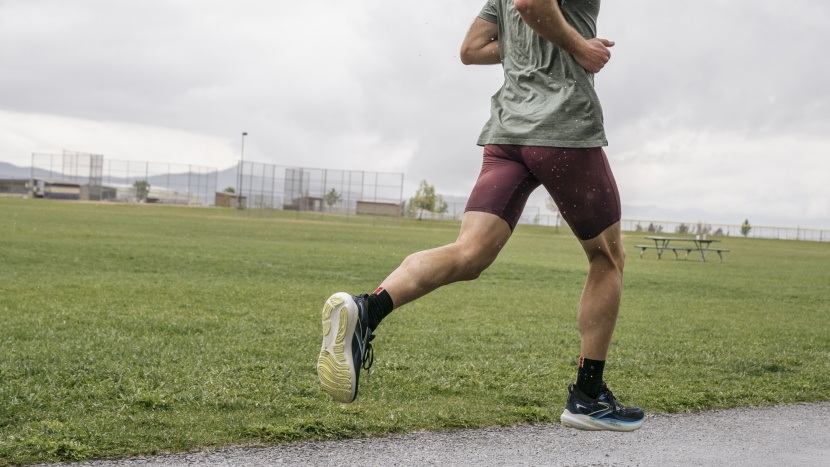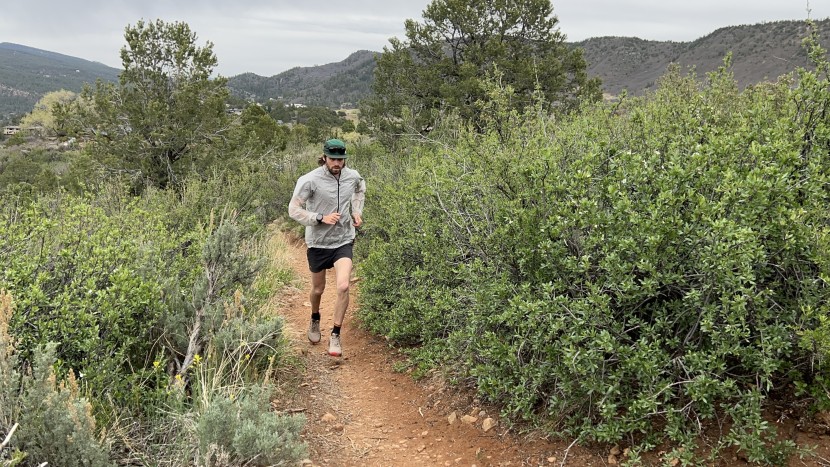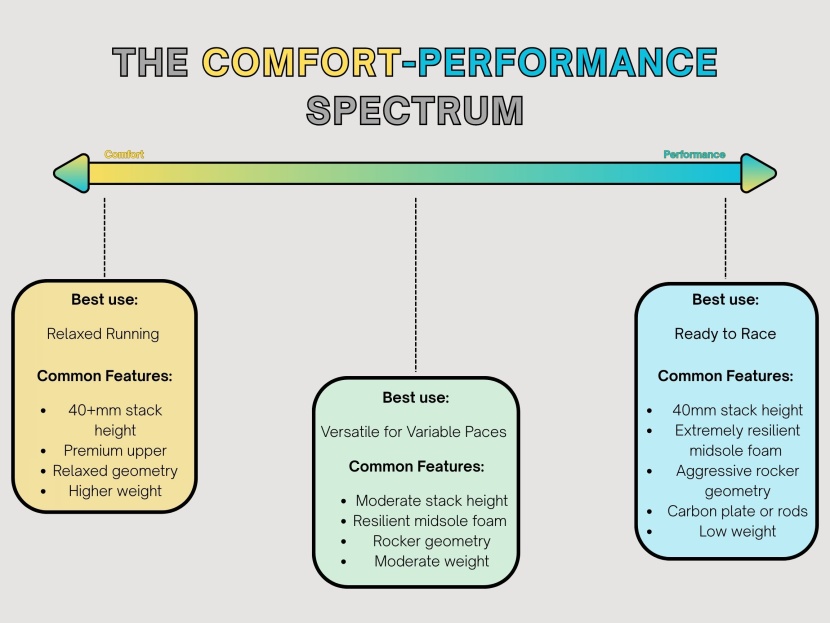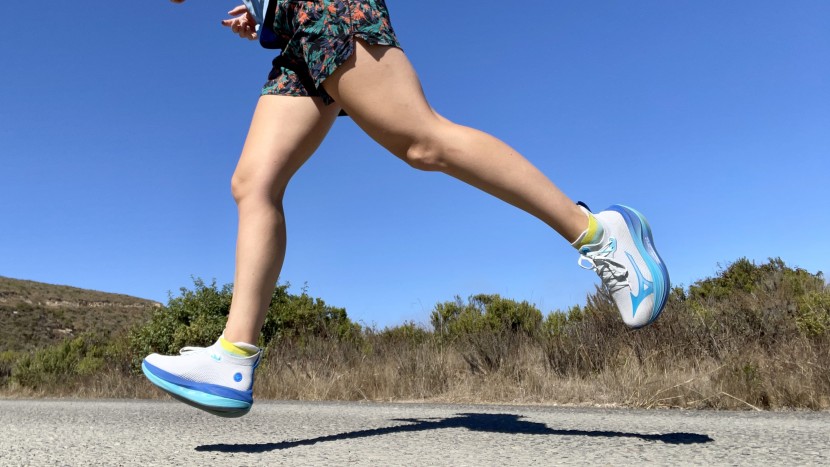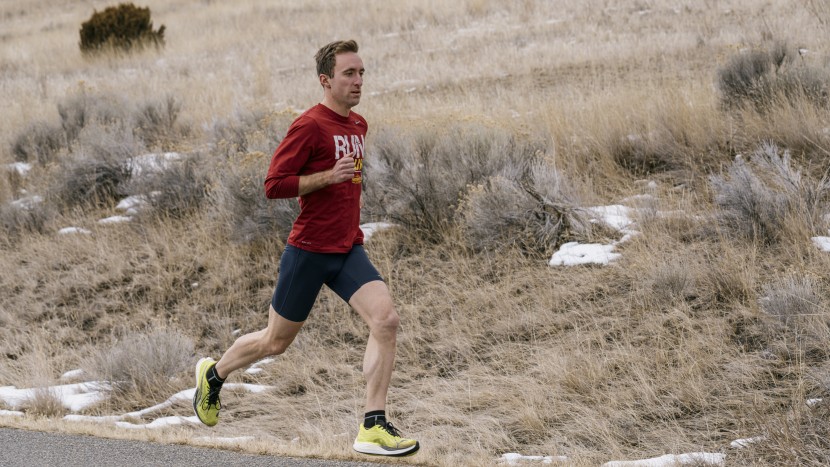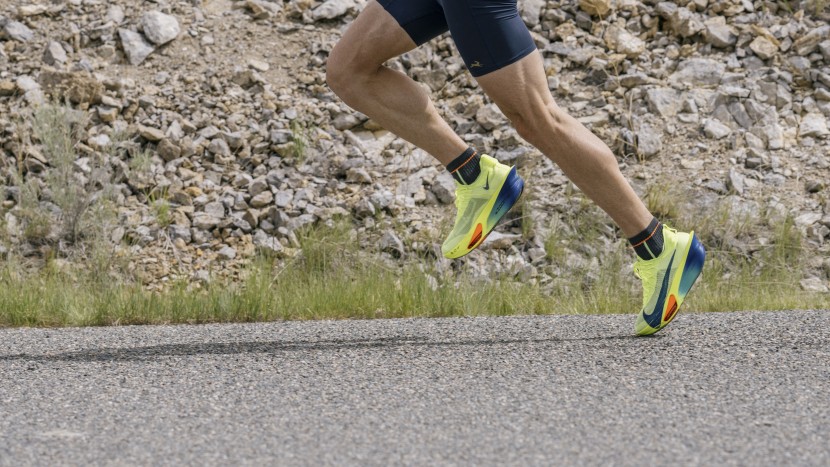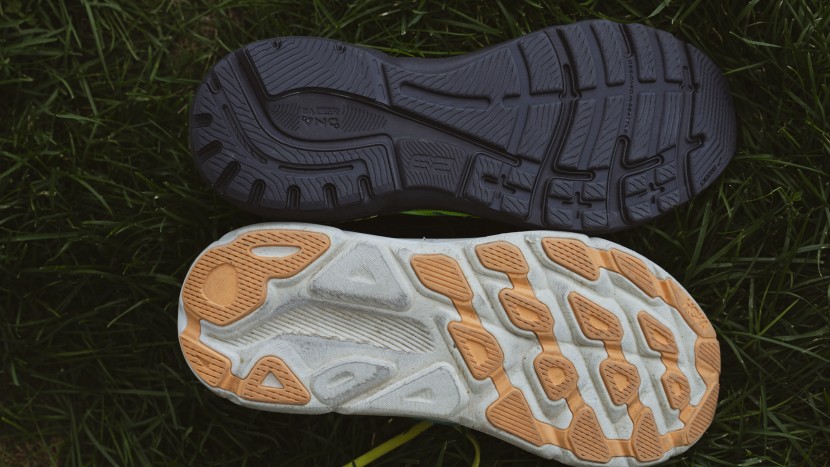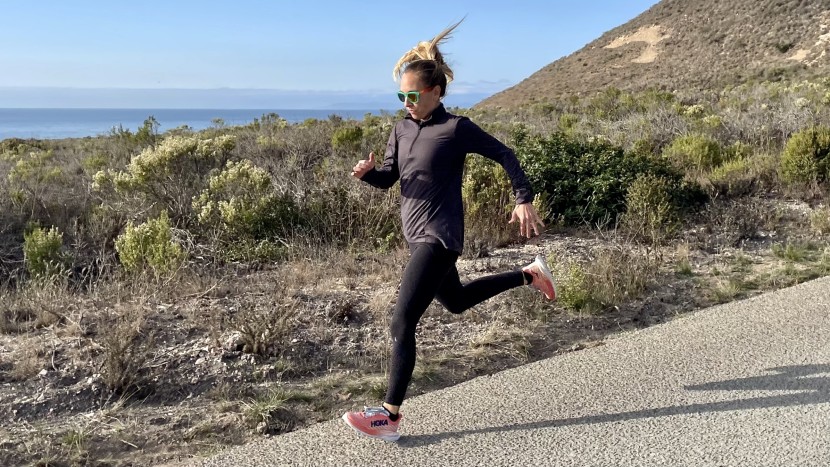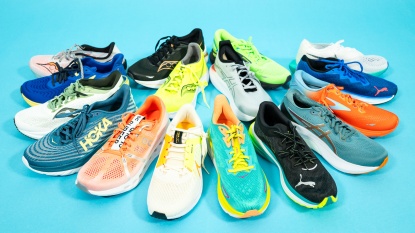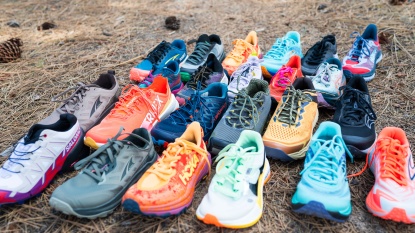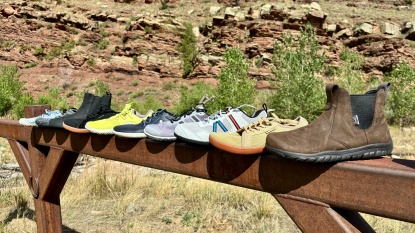So you're in the market for new running shoes? You're in luck. That's exactly what we do here. Our running shoe advice panelists are running coaches, exercise specialists, biomechanics experts, and ultra-distance record-setters, all focused on helping you find your best shoe — not to simply love someone else's favorite pair. Here, we'll take a deep dive into the market's top-ranked running shoes for men and women. No matter what you're looking for, we can point you in the right direction, no matter what your running goals are.
It's our goal to help you determine what your individual needs in a shoe are. From there, we'll help you choose the type of shoe that can help you to further your specific goals.
In this article, we'll walk you through the wide world of road running shoes and what makes them different from other types of athletic footwear. We get that it can feel overwhelming — we're pretty nerdy when it comes to this stuff, and there's a lot of nerdy running tech out there.
Whether you've been running for decades or are just starting out, there are four key components to choosing a running shoe:
- Define your goals
- Choose the ideal type(s) of shoe for those goals
- Try on a few pairs
- Go for a run!
Where Will You Run?
Where will you do most of your running? Will the majority of your miles be on smooth pavement? Will you spend time on gravel or dirt trails as well as on paved roads? Will you be using the shoes to train in a gym and only running for a few minutes at a time? Do you want to venture off into the mountains for hours on end? Some of everything?
Once you have a good idea of what type of running you want to do with the shoes, it's time to consider what shoes are ideal. Let's start with the most obvious difference: trail versus road.
Road Shoes
Road shoes are for running on roads. Surprise!
This type of shoe is designed to move in one direction — forward. They're designed to absorb the pounding of long miles on hard surfaces. That means they don't need great traction (pavement is generally designed to offer good traction already) but do need strong durability.
Modern road running shoes tend to have a higher stack height (the thickness of the foam under your foot). This added thickness makes them a poor choice for activities like heavy lifting, where soft compression can destabilize you, or sharp lateral movements, which could have you sliding off the edge of their high platform.
For most runners, road shoes are a good place to start. Most can easily handle dirt roads, gravel bike paths, and even some non-technical trails.
Trail Shoes
If you plan to spend lots of time off-pavement, particularly on loose, muddy, or rocky terrain, trail shoes are for you.
The best trail running shoes are purpose-built to handle the poking and scraping of rough terrain, with enough grip to handle loose surfaces and enough cushioning to protect your legs. These shoes offer added traction features and are typically better-equipped to handle the abrupt directional changes associated with bouncing between rocky features.
Trail shoes tend to be heavier than road-running shoes because of added traction and durability features. You might also find that these types of shoes also make great hiking shoes, thanks to that same feature set.
What Are Your Running Goals?
Once you've decided what broad type of shoe you want, it's time to consider the type of running you want to do.
Running shoes are optimized for a specific use case. Most exist on a spectrum with peak comfort on one end and speed on the other. That's because many of the features that provide comfort, like lots of cushion underfoot or soft knit upper materials, come with a weight and energy return penalty.
As a result, some shoes are optimized to be very fast, but aren't very comfortable when you're running easily, and vice versa. So it's important to think about the type of running that you'll be doing. Are you new to the sport and planning to go for daily runs? Are you training for a new PR at your next race? Are you racing a marathon and looking for a speedy option for race day? Thinking about your running goals and how you plan to achieve them is a great way to decide what style of running shoe is right for you.
Relaxed, Easy Mileage? Try a Cushioned Trainer
These shoes typically have lots of plush cushioning underfoot and a very comfortable upper. We categorize most shoes that have around 40 mm or more of stack height (foam thickness) in the heel as cushioned trainers. They're designed to eat up long miles while keeping you comfortable and offering above-average joint protection.
Cushioned trainers are useful for all types of runners. This type of shoe might be a good choice for you if you:- Value comfort above all else
- Prefer to run at 10 min/mile speeds or slower
- Spend 60+ minutes on a single run
- Strike with your heel first or land heavily
- Struggle with shoes that compress and pound flat too quickly
- Want extra joint insulation
How Stack Measurements Affect Your Running
Stack height is the thickness of every component of the shoe between your foot and the ground. The majority of shoes have a heel-to-toe drop, which is the difference between the heel stack height (typically thicker) and the toe stack height (typically thinner).
Shoes with a higher stack are typically stiffer from heel to toe. Many compensate with a rocker, or an upward curve along the bottom of the shoe. The most obvious rockers are at the fronts of shoes, but, together with small heel rockers, this rocker geometry helps strides feel smoother.
Taller stack heights and larger heel-to-toe drops can often come with lowered lateral stability — meaning that rounding corners or tackling uneven and slanted terrain can be more challenging. This can be offset with a wider platform under the forefoot, or other internal stabilizing structures.
Differences in heel-to-toe drop can also alter how your foot strike feels by changing which muscles and tendons are loaded while running. There are no hard and fast rules about how each might feel, though. Ultimately, it becomes a personal choice — try on several options before choosing what feels best for your feet.Running at a Range of Paces? Try a Daily Trainer
These are workhorse shoes that can do a bit of everything. They sit closest to the middle of the spectrum of comfort and energy return. They're cushioned enough for long plodding runs and fast enough to handle speed workouts. For most new runners, these are the best type of shoe to buy. Daily trainers come with a lot of variety — including options that are great for easy running and others that thrive during threshold workouts. The best ones can do it all.
You might want to consider a daily trainer if you:- Are new to running (welcome!)
- Like running both fast speeds and slow plods
- Value comfort and speed equally
- Want to only have one pair of running shoes
- Run on variable surfaces like gravel roads or short trail sections
- Prefer a higher level of lateral stability and a more planted feeling
The Best Shoes for New Runners
As a new runner, your body is rapidly adapting to new demands. Your muscles and bones are adapting to new forces and are getting stronger. Your body is adapting and refining movement patterns to make you more efficient. Because of that, you don't want your shoes to be too extreme on either end of the comfort-performance spectrum.
High-performance shoes are often very rockered and very stiff. That means they transfer the load of running to muscles and joints that may not be strong enough to handle it yet. High-comfort shoes are often heavy and very soft, requiring more effort and strength to move, making your efforts harder than necessary.
That's why we recommend a simple daily trainer for most new runners. They're not extreme and should allow your body to naturally find its most efficient movement pattern. Try on a few, find one that feels good, and get started!Shooting for a PR or Gearing Up for a Race? Try a Racing Shoe
When it's time to lace up and race, these are the most speed-centric, performance-optimized shoes on the market. They often utilize an extremely lightweight upper that sacrifices some comfort and an extremely resilient, high-energy return foam. Most utilize some form of composite plate to help provide an extremely responsive ride, along with a rocker geometry that aids turnover. These shoes should be reserved for hard efforts only.
Race shoes are best for runners who:- Value speed above all else
- Already have a shoe for daily running
- Want a specific pair of shoes for races and hard workouts
- Don't have significant stability concerns
- Like very stiff shoes
What's a Super Shoe?
Super shoe is a common label for shoes that utilize a combination of highly resilient (high energy-return) foams and a composite stiffening agent, like a carbon plate. These shoes have been shown to increase running economy (a measure of energy demand while running) in most, though not all, runners.
Though there are now many super shoes available on the market (for a premium price!), research has shown that different runners react differently to different super shoes — so what works for one runner may not work for you. Some people will benefit significantly from a shoe with a late forefoot rocker and highly resilient foam, while others may benefit from an earlier midfoot rocker and a more curved plate. Most super shoes require a learning period, and adapting your stride to suit that shoe's particular attributes.
There are also many daily trainers that utilize some of the features of super shoes, like highly resilient foam or a composite stiffener. These super trainers typically offer a midpoint of speed and comfort between full racing super shoes and standard daily trainers. Yet for some runners, these super trainers have become their favorite racing shoe!Considering Fit
Now that you know what type of shoe you're looking for, it's time to get them on your feet! The most important thing to consider is fit.
When choosing a shoe, a great rule of thumb is if it feels comfortable, it will probably work well for you, and if it doesn't feel comfortable, move on. It sounds overly simple, but it's actually backed by science; studies have found that initial comfort is one of the best predictors of a successful shoe choice and potentially for reducing injury risk.
So, what should you look for when you're assessing comfort? Research has shown that you should ask yourself a few things:
- Does the heel feel comfortable under your foot?
- Does the forefoot feel comfortable under your foot?
- Does the shoe feel stable to you?
- Does the shoe feel comfortable overall, including how it holds the top of your foot?
- Does the front of the shoe feel flexible to you?
Obviously, this means you need to try shoes on. There are lots of ways to do that, from ordering a number of shoes online and returning some to visiting a local running store.
Rotating Your Shoes
If you tried on a few pairs and found you loved more than one, that's okay. In fact, many runners have a rotation of shoes they use for a few reasons:
- Research suggests that a rotation of 2-3 shoes can be helpful in preventing injury.
- Pairing a faster shoe with a faster workout and a comfy shoe with a long run feels good.
- Rotating your shoes can help each pair last a bit longer — plus if your feet get wet, you're guaranteed to have a dry pair for the next run.
If you don't have a rotation but want to build one, we recommend starting out with a versatile daily trainer. Then, over time, you can decide what you value most and add in other pairs that suit your preferences and needs.
Considering Stability
You might have heard of stability shoes, or even been told you need a pair. Stability shoes are designed to direct the motion of your foot to prevent “excessive” levels of lateral movement — and you likely don't truly need a pair unless you were specifically told so by a running-focused physiotherapist or sports medicine physician.
For a long time, we were told there are two types of runners: neutral runners and overpronators. If you went to a running store for the first time, you'd get a gait analysis and be told you were one of those two types. Then, you'd be shown the type of shoe that was “right” for you.
Fast forward to now, and the research and best practices have changed a lot. We know that individual runners respond very differently to different types of shoes. We now know that some levels of pronation are essential to healthy movement as a runner, and healthy levels vary from person to person.
We also know that putting beginning runners in stability shoes when they don't have a history of lower leg injuries can actually cause injury rather than prevent it. In fact, the need for stability shoes for the majority of runners is up for debate in current research.
So, let's go back to our comfort test! Even if you've been told you're a certain type of runner because of your arch shape or your foot's motion, we suggest trying on a range of shoes with varying levels of stability and cushioning.
For most beginners, we recommend a neutral, non-plated daily trainer that feels planted and comfortable. If you have a history of pronation-related injuries to the lower leg, some level of stability will likely be good for you, but you should still try on a number of options that fit your needs and go with what feels good. Remember, what feels good may change over time as your body and movement patterns change.
Conclusion
Having answered all those questions, you're now well-equipped to choose the right type of shoe for your running goals and preferences. Ultimately, one of the most important things you can do when deciding which pair is right for you is to try them on and see how they feel on your feet. Fit is arguably the most important part of choosing a running shoe.
And remember to let your body adapt — to both the shoes and to running! Running is best enjoyed injury-free. That means you need to give your body time to adjust to new stimuli. If you're ready to pick your best pair check out our testing results and summaries of hundreds of pairs of men's and women's road running shoes.
After that, happy miles!

